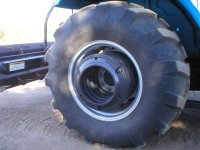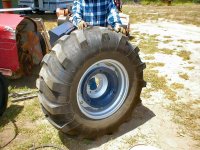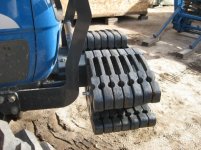ShilohFarm
New member
Hi Everyone,
I have a CaseIH Farmall 75C and need to add rear wheel weights. I see that CaseIH sells 2 weights (220lbs) per wheel, but someone suggested that I really should consider 3 weights (330lbs) per rear wheel. I do have a CaseIH 620 loader on the front and with no added weights, I have brought one rear wheel off the ground - not may favorite thing to do. When not using the loader, I do remonve it for bush hogging, chisel plowing and discing. Any suggestions on 2 vs 3 weights per rear wheel? Thank you.
I have a CaseIH Farmall 75C and need to add rear wheel weights. I see that CaseIH sells 2 weights (220lbs) per wheel, but someone suggested that I really should consider 3 weights (330lbs) per rear wheel. I do have a CaseIH 620 loader on the front and with no added weights, I have brought one rear wheel off the ground - not may favorite thing to do. When not using the loader, I do remonve it for bush hogging, chisel plowing and discing. Any suggestions on 2 vs 3 weights per rear wheel? Thank you.


